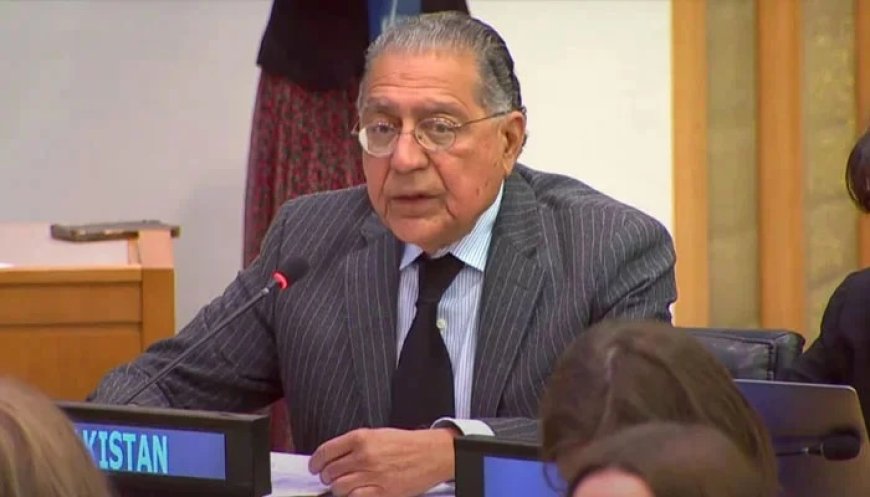Ambassador Munir Akram exposes anti-Pakistan propaganda at UN
Ambassador Munir Akram exposes anti-Pakistan propaganda at UN

1.
In a speech to the UN Security Council's High-Level Open Debate on "Maintenance of International Peace and Security: Addressing Evolving Threats in Cyberspace," Pakistan’s permanent representative to the United Nations, Munir Akram, highlighted the significant impact of disinformation and cyber warfare on countries like Pakistan. Akram emphasized the necessity for a legally binding global document based on guidelines provided by Information and Communication Technologies (ICTs).
Akram referred to the findings of EU DisinfoLab's reports from 2019 and 2020, which revealed extensive anti-Pakistan propaganda, including disinformation campaigns and cyber warfare. The 2019 report detailed a 15-year operation against Pakistan involving over 10 fraudulent NGOs, more than 750 fake media outlets, and 550 fake websites, with even deceased individuals being impersonated.
Akram stressed the global importance of addressing these disinformation campaigns and introduced Pakistan’s sponsored UN General Assembly resolution, "Countering Disinformation for the Promotion and Protection of Human Rights and Fundamental Freedoms." This resolution highlights the responsibility of states to combat disinformation that undermines peace and cooperation.
He also underscored the importance of creating an international framework aligned with UN Charter principles, such as sovereignty, territorial integrity, non-use of force, and non-interference. Akram proposed confidence-building measures (CBMs) like voluntary information exchange, bridging the digital divide through capacity building, and enhanced international cooperation.
He praised the establishment of the Global Points of Contact Directory for ICT Security as a significant step towards fostering trust and cooperation among states. Akram reaffirmed Pakistan's commitment to a stable and secure cyberspace, leveraging digital technologies for socio-economic development and efficient governance, reflecting the country's dedication to using digital advancements for public service delivery and socio-economic growth.


















































